From the Open-Publishing Calendar
From the Open-Publishing Newswire
Indybay Feature
Private Desal Meeting - Report, Photos, Background
Public officials from the past and present filed into the Museum of Art and History Monday night as Mike Rotkin and Cynthia Mathews, describing themselves as part of "the Sustainable Water Coalition," hosted a private, invite-only informational meeting in support of the proposed desalination plant project. The desal project, which so far has cost $6 million dollars to be studied, has been aggressively promoted by officials, and this private meeting has brought up issues of governmental transparency. This meeting punctuates a new era of suspicion concerning local politicians: during the planning of the desal project there have been conflicts of interest, including the selection of the URS Corporation to author the EIR, as well as recent ethics violations on the part of city officials.
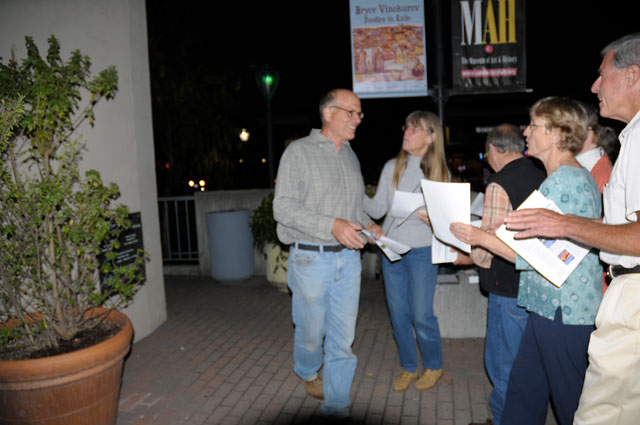
I arrived at the museum about 15 minutes before the 7:30pm starting time for the event, with the intention of photographing those who attended, and to report on the scene outside. At that time approximately 20 people were quietly protesting at the Front Street entrance. The bulk of the group was comprised of people distributing printed information on behalf of the organizations Santa Cruz Desal Alternatives and Transition Santa Cruz. Paul Gratz, one of the leaders of Santa Cruz Desal Alternatives, was among them. Also in attendance was a handful of other observers and protesters who were not affiliated with those organizations. Attorney Ed Frey was handing out small fliers imprinted with his web address, and Attorney and city council candidate Steve Pleich was also outside. He made it clear that he was not invited to the meeting, and he was not protesting; he was there to observe. He left rather quickly to attend that same evening's ACLU meeting, for which he is a board member of the local chapter. One man was using a hand held video camera to videotape the people entering the museum.
Reporters from Santa Cruz Patch, the Santa Cruz Sentinel, and KION TV were there, as well as at least one freelancer. There weren't any picket signs outside, just people handing out printed alternative information, and the main group did not appear to attempt to enter the meeting. Someone involved with the event communicated that the patio in front of the museum was rented, and that protesters would have to leave the area, but no one left and no police or security ever arrived to address that. By the time the meeting actually began, most of the protesters had left, except for Paul Gratz and one other woman with Santa Cruz Desal Alternatives, who had also been handing out fliers. They suggested I should go inside, and I asked them if they planned to enter, and they said no, because they had heard it all before. I then decided to attempt to go inside and observe. I gave the attendants at the front door my name, they wrote it down on the list, and allowed me to go in.
Inside, Cynthia Mathews was introducing Bill Kocher, director of the Santa Cruz Water Department, and Laura Brown, director of the Soquel Creek Water District. The pair then shared the duties of presenting the basic desal information concerning the proposed project that has already been introduced to the public multiple times and in various forums. I was struck by how repetitive the information seemed to me, and their presentation always seems like a hard sell, as opposed to a more neutral communication of information. Bill Kocher continually punctuates the presentations with salesperson-like affirmations such as, "We need this!"
Mike Rotkin was nowhere to be seen inside, and it was unclear if any of those at the meeting were also members of the "Sustainable Water Coalition." When questioned through email, Rotkin and Mathews have so far not disclosed who has funded the group (and paid for renting the museum) and they have not disclosed the names of any of the other members of the coalition, or if there are even any other members at all. At times, the meeting had the feel of a private club filled with public officials, and clearly a group of them there had politically bonded over the issue and were using the event to further those connections.
Approximately 50 people were inside of the meeting. The Santa Cruz Sentinel reported that some of the public officials that were in attendance included county supervisors Ellen Pirie and John Leopold; Cabrillo College President Brian King; Santa Cruz Vice Mayor Don Lane and members of the city commissions; Gary Griggs, director of Institute of Marine Sciences at UC Santa Cruz, geologist, and columnist for the Santa Cruz Sentinel; Jess Brown, executive director of the Santa Cruz County Farm Bureau; and Cleo O'Brien, a local government relations committee member for the Santa Cruz Board of Realtors. Also there was Mark Primack, the former Santa Cruz city council member and architect who is currently working on the Delaware Avenue live-work project. The presentation itself was taped for Community Television.
This meeting adds to a list of inappropriate activities and outright ethics violations committed by public officials with regards to the desal proposal.
In a stunning appearance of conflict of interest, the URS Corporation was chosen to author the desal proposal's Environmental Impact Report (EIR). URS Corporation was also one of the authors of UC Santa Cruz's 2005 Long Range Development Plan (LRDP). That LRDP created a quite a controversy for the rate at which the Santa Cruz campus was projected to grow, and at the time of its inception, the city sued UCSC over it. In 2008, however, the city and UCSC came to an agreement which would essentially clear the path for the university's big growth plans through 2020. In the Notice of Preparation (NOP) for the desal project, it was stated that the project would not be growth inducing, and the proponents of the project often assure the public that it is not a plan designed to increase the size of our community, it is for emergency use. Did that agreement in 2008 between the city and UCSC include a secret desal deal?
URS Corporation is an engineering firm which is one of the top 100 governmental contractors. At the time of the authoring of the LRDP, on the board of directors of URS Corporation for 30 years was Richard Blum, who was at the time and still is a UC Regent. He also presently manages a multi-billion dollar portfolio for his firm Blum Capital in San Francisco, and he is the husband of Senator Dianne Feinstein. That URS was chosen for the desal EIR is certainly a conflict of interest, and the company also has a sullied building record. The URS Corporation is known for having conducted a fatigue evaluation for the I35W Mississippi River Bridge in 2003. The bridge famously collapsed in 2007, and URS wound up paying out a settlement. URS was also involved with UC Merced's LRDP, as well as parts of UC Berkeley's. In 2007, Senator Feinstein resigned from the Military Construction Appropriations subcommittee when it was discovered that she had approved military construction projects which were awarded to her husband's companies, one of which was URS Corporation. Also of note, Dianne Feinstein made headlines in 2010 for choosing one side during a water issue that would have had the effect of increasing the water supply to Southern California at the expense of Northern California in a California Delta water issue.To accomplish this, she urged President Obama to loosen restrictions that protected an endangered species, and it was revealed that she had received a letter encouraging her to do so by one of her big campaign donors, Stewart Resnick. He is a wealthy, Californian corporate farmer who owns Paramount Farms, and he donated $29,000 to Feinstein's senatorial campaign.
To develop any tidelands area of the California coast, a license from the state is required, and The California State Lands Commission (CSLC) is the governing body. The CSLC has requested that the issue of growth be addressed in the EIR. Members of the commission include the Lieutenant Governor Gavin Newsom, the State Controller and the State Director of Finance. In one interview concerning state water issues, Newsom stressed conservation as the primary method of dealing with water shortages, but he also pointed to the desal plans that San Francisco and Contra Costa Counties have partnered to create as also necessary. In his bid for the office of San Francisco mayor, Newsom was listed as having received $27,000 from Stewart Resnick and his associates, and this may give a general indication of the type of water interests who have access to Newsom's ear.
These EIR issues join other issues of ethics with regards to the behavior of public officials and the proposed desal project. In August the Santa Cruz Sentinel reported that the state had found that Mayor Ryan Coonerty, Vice Mayor Don Lane, and Water Department Director Bill Kocher had been involved in a second ethics violation regarding a desal flier that was mailed out to 24,000 residences, and was signed by public officials.
In January of this year City Attorney John Barisone wrote a controversial letter to the Local Agency Formation Commission (LAFCO) which oversees a lot of the growth issues in the area. He wrote the letter without the direction of the city council, and though the LAFCO decision did not go his way, at least one city council member alerted the public that he was not authorized to do what he did.
Alex Darocy
http://alexdarocy.blogspot.com/
To email the Santa Cruz City Council about these issues:
citycouncil [at] cityofsantacruz.com
For more information:
http://desalalternatives.org
http://transitionsc.org/
http://www.slc.ca.gov/ California State Lands Commission
http://www.scwd2desal.org/ The official government website for the project
Reporters from Santa Cruz Patch, the Santa Cruz Sentinel, and KION TV were there, as well as at least one freelancer. There weren't any picket signs outside, just people handing out printed alternative information, and the main group did not appear to attempt to enter the meeting. Someone involved with the event communicated that the patio in front of the museum was rented, and that protesters would have to leave the area, but no one left and no police or security ever arrived to address that. By the time the meeting actually began, most of the protesters had left, except for Paul Gratz and one other woman with Santa Cruz Desal Alternatives, who had also been handing out fliers. They suggested I should go inside, and I asked them if they planned to enter, and they said no, because they had heard it all before. I then decided to attempt to go inside and observe. I gave the attendants at the front door my name, they wrote it down on the list, and allowed me to go in.
Inside, Cynthia Mathews was introducing Bill Kocher, director of the Santa Cruz Water Department, and Laura Brown, director of the Soquel Creek Water District. The pair then shared the duties of presenting the basic desal information concerning the proposed project that has already been introduced to the public multiple times and in various forums. I was struck by how repetitive the information seemed to me, and their presentation always seems like a hard sell, as opposed to a more neutral communication of information. Bill Kocher continually punctuates the presentations with salesperson-like affirmations such as, "We need this!"
Mike Rotkin was nowhere to be seen inside, and it was unclear if any of those at the meeting were also members of the "Sustainable Water Coalition." When questioned through email, Rotkin and Mathews have so far not disclosed who has funded the group (and paid for renting the museum) and they have not disclosed the names of any of the other members of the coalition, or if there are even any other members at all. At times, the meeting had the feel of a private club filled with public officials, and clearly a group of them there had politically bonded over the issue and were using the event to further those connections.
Approximately 50 people were inside of the meeting. The Santa Cruz Sentinel reported that some of the public officials that were in attendance included county supervisors Ellen Pirie and John Leopold; Cabrillo College President Brian King; Santa Cruz Vice Mayor Don Lane and members of the city commissions; Gary Griggs, director of Institute of Marine Sciences at UC Santa Cruz, geologist, and columnist for the Santa Cruz Sentinel; Jess Brown, executive director of the Santa Cruz County Farm Bureau; and Cleo O'Brien, a local government relations committee member for the Santa Cruz Board of Realtors. Also there was Mark Primack, the former Santa Cruz city council member and architect who is currently working on the Delaware Avenue live-work project. The presentation itself was taped for Community Television.
This meeting adds to a list of inappropriate activities and outright ethics violations committed by public officials with regards to the desal proposal.
In a stunning appearance of conflict of interest, the URS Corporation was chosen to author the desal proposal's Environmental Impact Report (EIR). URS Corporation was also one of the authors of UC Santa Cruz's 2005 Long Range Development Plan (LRDP). That LRDP created a quite a controversy for the rate at which the Santa Cruz campus was projected to grow, and at the time of its inception, the city sued UCSC over it. In 2008, however, the city and UCSC came to an agreement which would essentially clear the path for the university's big growth plans through 2020. In the Notice of Preparation (NOP) for the desal project, it was stated that the project would not be growth inducing, and the proponents of the project often assure the public that it is not a plan designed to increase the size of our community, it is for emergency use. Did that agreement in 2008 between the city and UCSC include a secret desal deal?
URS Corporation is an engineering firm which is one of the top 100 governmental contractors. At the time of the authoring of the LRDP, on the board of directors of URS Corporation for 30 years was Richard Blum, who was at the time and still is a UC Regent. He also presently manages a multi-billion dollar portfolio for his firm Blum Capital in San Francisco, and he is the husband of Senator Dianne Feinstein. That URS was chosen for the desal EIR is certainly a conflict of interest, and the company also has a sullied building record. The URS Corporation is known for having conducted a fatigue evaluation for the I35W Mississippi River Bridge in 2003. The bridge famously collapsed in 2007, and URS wound up paying out a settlement. URS was also involved with UC Merced's LRDP, as well as parts of UC Berkeley's. In 2007, Senator Feinstein resigned from the Military Construction Appropriations subcommittee when it was discovered that she had approved military construction projects which were awarded to her husband's companies, one of which was URS Corporation. Also of note, Dianne Feinstein made headlines in 2010 for choosing one side during a water issue that would have had the effect of increasing the water supply to Southern California at the expense of Northern California in a California Delta water issue.To accomplish this, she urged President Obama to loosen restrictions that protected an endangered species, and it was revealed that she had received a letter encouraging her to do so by one of her big campaign donors, Stewart Resnick. He is a wealthy, Californian corporate farmer who owns Paramount Farms, and he donated $29,000 to Feinstein's senatorial campaign.
To develop any tidelands area of the California coast, a license from the state is required, and The California State Lands Commission (CSLC) is the governing body. The CSLC has requested that the issue of growth be addressed in the EIR. Members of the commission include the Lieutenant Governor Gavin Newsom, the State Controller and the State Director of Finance. In one interview concerning state water issues, Newsom stressed conservation as the primary method of dealing with water shortages, but he also pointed to the desal plans that San Francisco and Contra Costa Counties have partnered to create as also necessary. In his bid for the office of San Francisco mayor, Newsom was listed as having received $27,000 from Stewart Resnick and his associates, and this may give a general indication of the type of water interests who have access to Newsom's ear.
These EIR issues join other issues of ethics with regards to the behavior of public officials and the proposed desal project. In August the Santa Cruz Sentinel reported that the state had found that Mayor Ryan Coonerty, Vice Mayor Don Lane, and Water Department Director Bill Kocher had been involved in a second ethics violation regarding a desal flier that was mailed out to 24,000 residences, and was signed by public officials.
In January of this year City Attorney John Barisone wrote a controversial letter to the Local Agency Formation Commission (LAFCO) which oversees a lot of the growth issues in the area. He wrote the letter without the direction of the city council, and though the LAFCO decision did not go his way, at least one city council member alerted the public that he was not authorized to do what he did.
Alex Darocy
http://alexdarocy.blogspot.com/
To email the Santa Cruz City Council about these issues:
citycouncil [at] cityofsantacruz.com
For more information:
http://desalalternatives.org
http://transitionsc.org/
http://www.slc.ca.gov/ California State Lands Commission
http://www.scwd2desal.org/ The official government website for the project
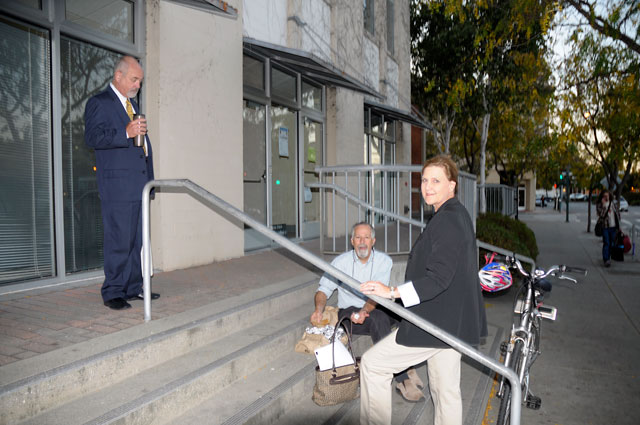
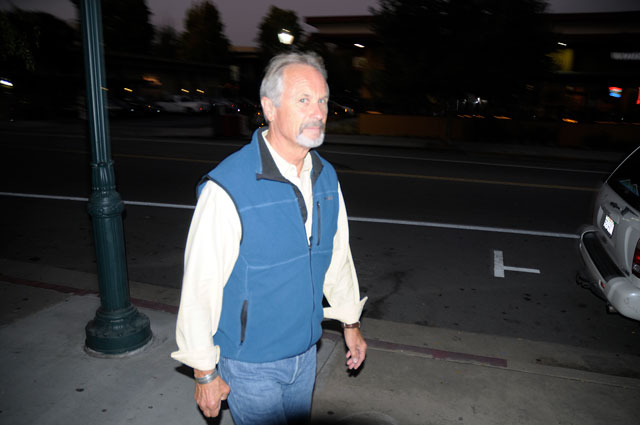
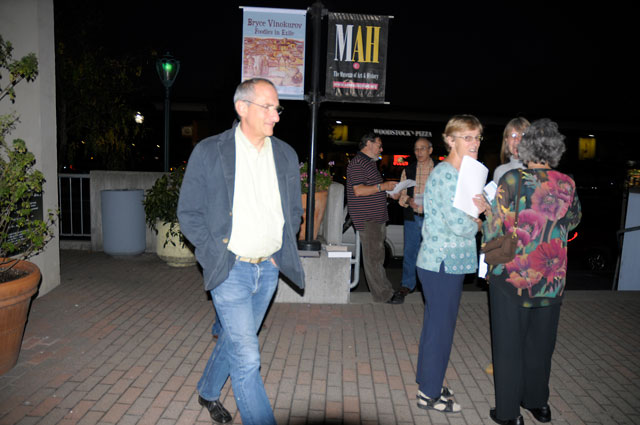
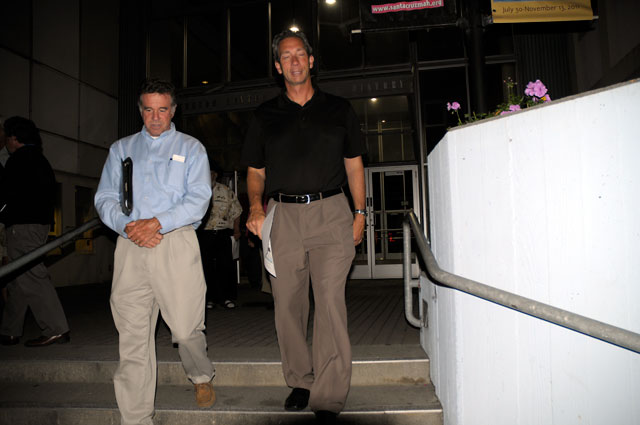
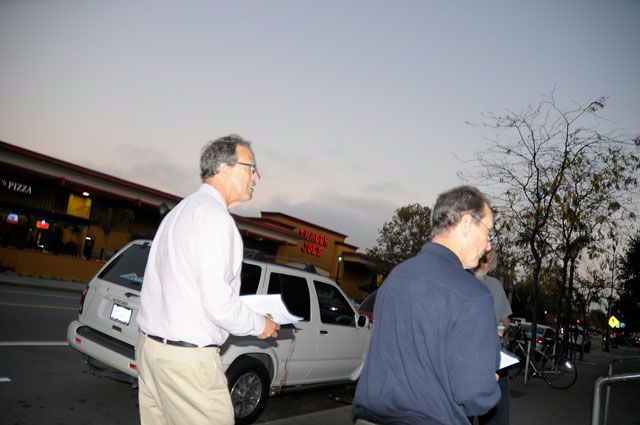
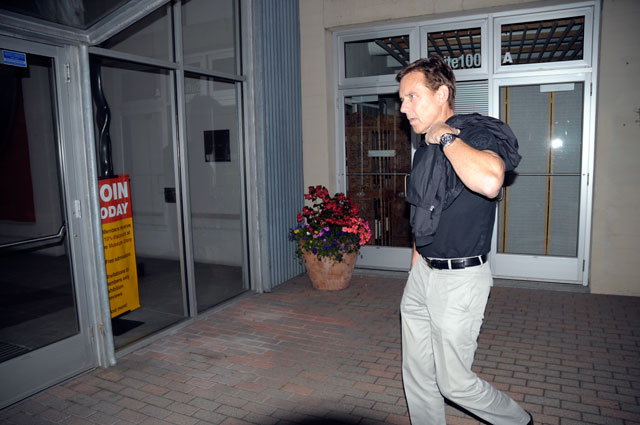
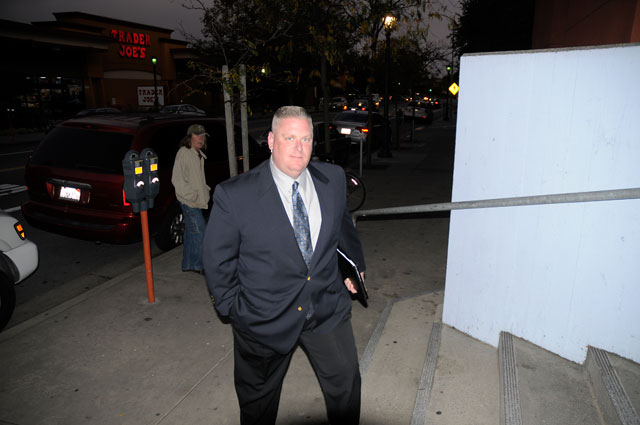
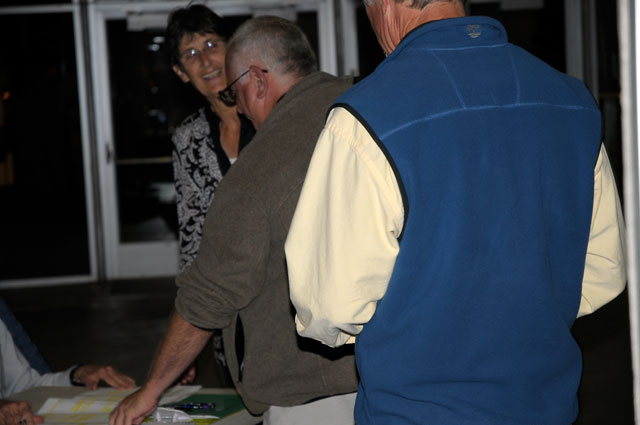
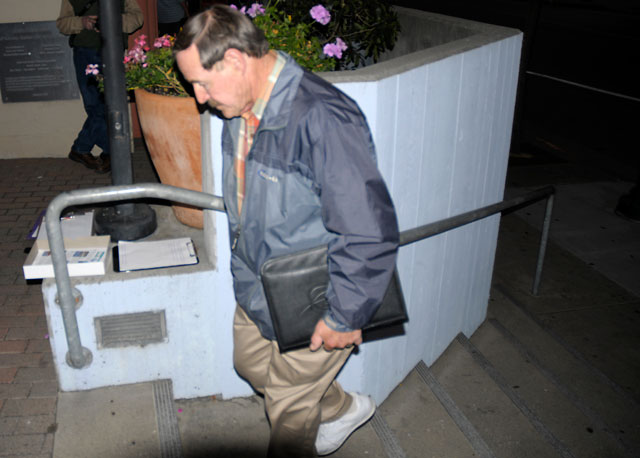
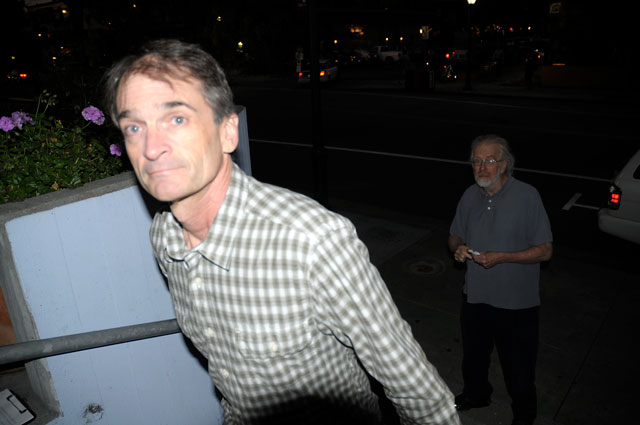
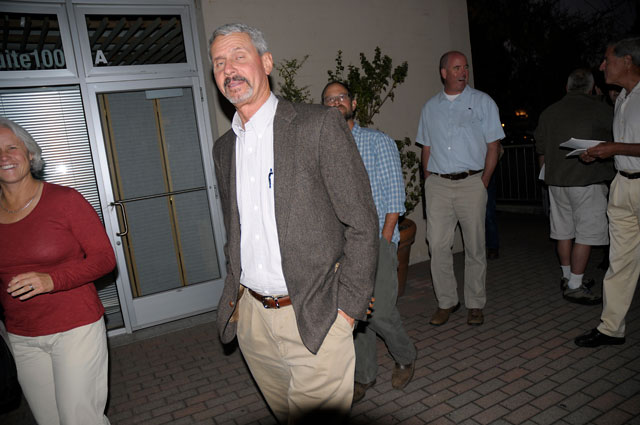
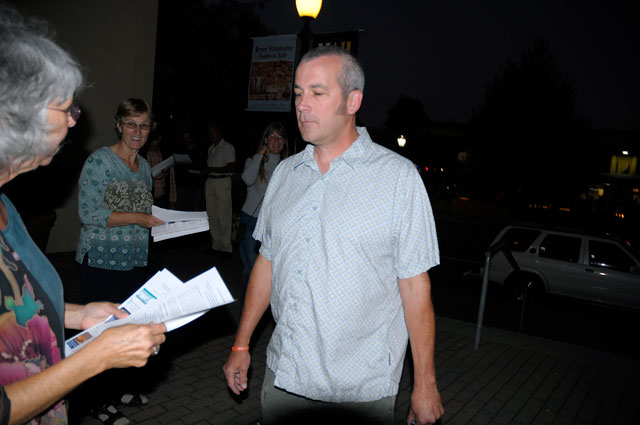
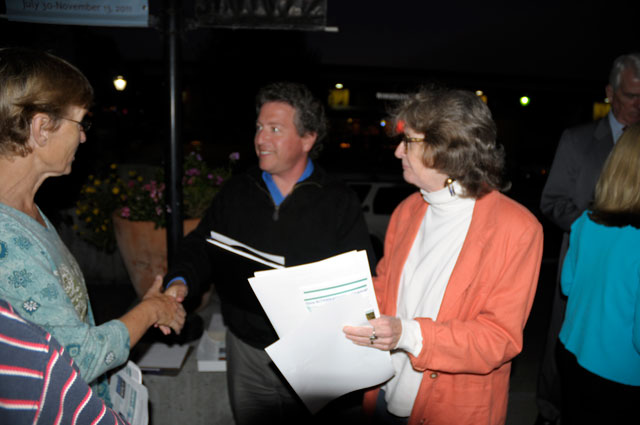
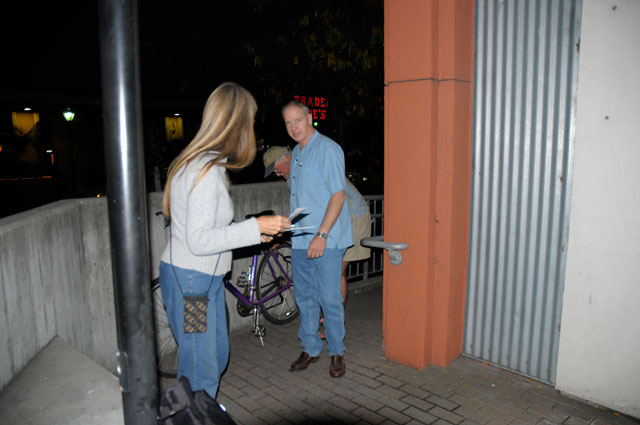
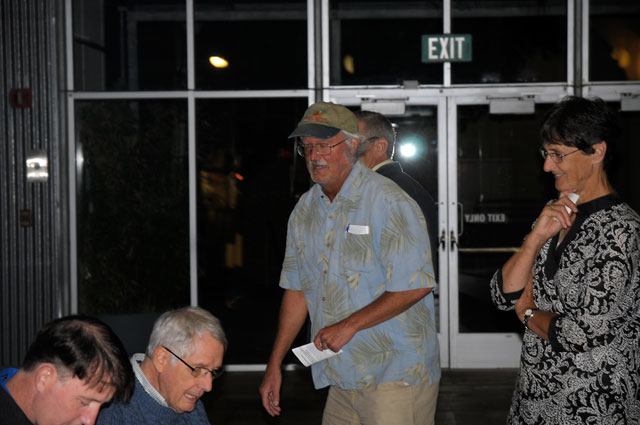
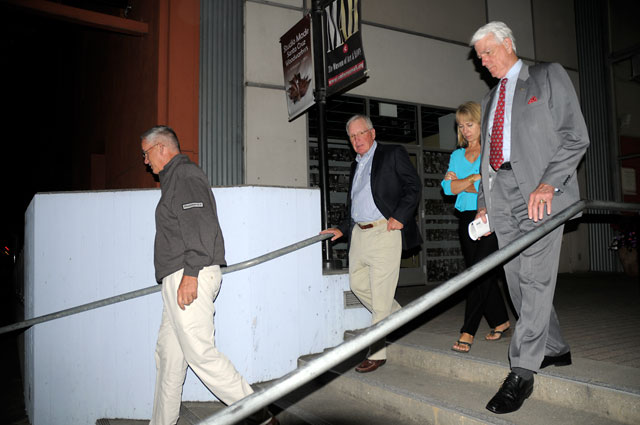
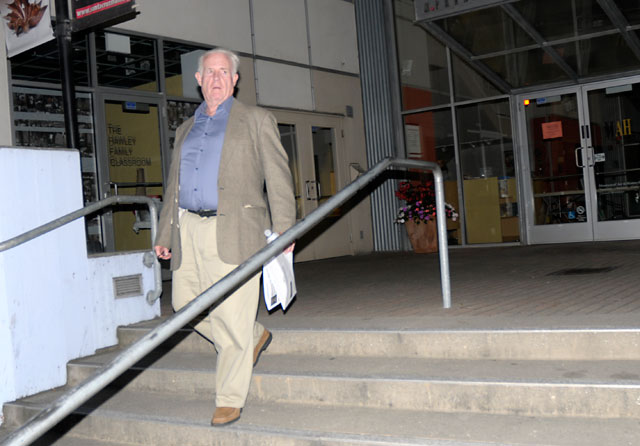
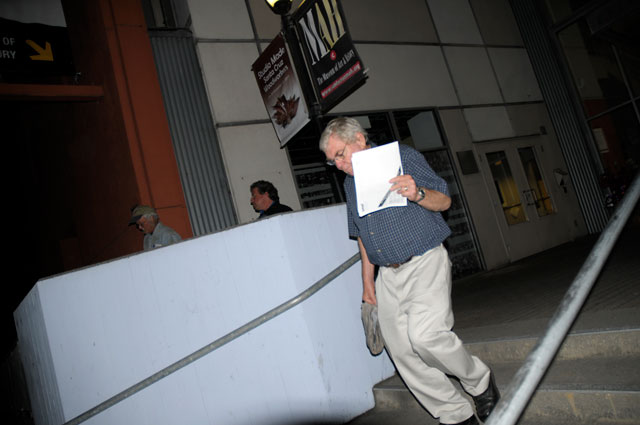
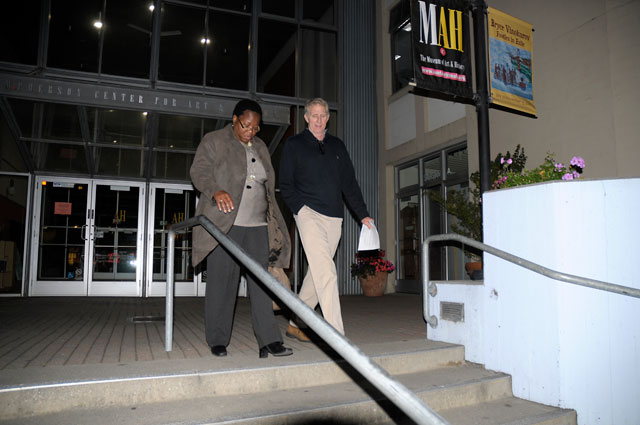
Add Your Comments
Comments
(Hide Comments)
Mike Rotkin and Cynthia Mathews have called their new group the “Sustainable Water Coalition”. According to the Bruntland Commission, “sustainable” means meeting "the needs of the present without compromising the ability of future generations to meet their own needs". Since desalination would use 13 times the electricity per gallon as our current water supply, the new group would be better named the “Fossil-Fueled Water Supply Coalition”.
For more information:
http://desalalternatives.org
I recommend submitting California Public Records Act (CPRA) requests to get at the City's and the County's connections to the "Sustainable Water Coalition". I suspect that this group, made up partly of elected officials, is violating the Political Reform Act (PRA).
Read a copy of the PRA --
http://www.fppc.ca.gov/index.php?id=51
-- and submit CPRA requests to the Santa Cruz City Clerk and the County of Santa Cruz to see what connections City and County government have with the Sustainable Water Coalition to facilitate a complaint with the Fair Political Practices Commission and a private lawsuit.
Information about the CPRA can be found here:
http://www.thefirstamendment.org/publicrecordsact.pdf
https://www.calaware.org/programs/Top10CPRA(booklet).pdf
http://www.rcfp.org/ogg/index.php?op=browse&state=CA
Read a copy of the PRA --
http://www.fppc.ca.gov/index.php?id=51
-- and submit CPRA requests to the Santa Cruz City Clerk and the County of Santa Cruz to see what connections City and County government have with the Sustainable Water Coalition to facilitate a complaint with the Fair Political Practices Commission and a private lawsuit.
Information about the CPRA can be found here:
http://www.thefirstamendment.org/publicrecordsact.pdf
https://www.calaware.org/programs/Top10CPRA(booklet).pdf
http://www.rcfp.org/ogg/index.php?op=browse&state=CA
Interviews with Alex are downloadable or streamable at:
http://www.radiolibre.org/brb/brb110922.mp3 (about an hour & 56 minutes into the audio file)
http://www.radiolibre.org/brb/brb110925.mp3 (about 4 hours, 36 minutes, 15 seconds into the audio file)
http://www.radiolibre.org/brb/brb110922.mp3 (about an hour & 56 minutes into the audio file)
http://www.radiolibre.org/brb/brb110925.mp3 (about 4 hours, 36 minutes, 15 seconds into the audio file)
We are 100% volunteer and depend on your participation to sustain our efforts!
Get Involved
If you'd like to help with maintaining or developing the website, contact us.
Publish
Publish your stories and upcoming events on Indybay.
Topics
More
Search Indybay's Archives
Advanced Search
►
▼
IMC Network


